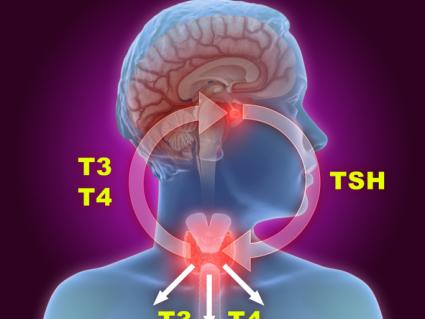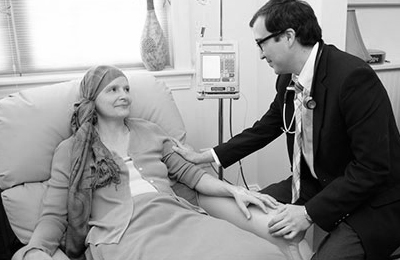Our Thyroid & How It Works

How our thyroid acts like the central heating unit for our body.
The thyroid gland is one of three main glands under the control of the hypothalamus and pituitary. The hypothalamus and pituitary are signaling glands while the thyroid is a hormone producing gland. The “signal” the pituitary sends to the thyroid gland is thyroid stimulating hormone, or TSH for short. TSH causes the the thyroid to make more thyroid hormone. So if the pituitary senses that thyroid hormone levels are low, it will send more TSH to the thyroid to increase production. Once hormone levels are higher, TSH levels will decrease.
Often difficult to understand, I will provide an analogy by using a central home heating unit. For central heat there is the master controller of temperature and in most cases it would be someone in the household. This person (the hypothalamus) would set the the thermostat at a certain temperature, let’s say 70 degrees. The actual thermostat provides the signal to the heater to turn on or off, therefore the thermostat is the pituitary gland. The heater receives signals to turn on or off to provide heat. The heater is the thyroid gland. The actual heat then would be the thyroid hormone.
The most common thyroid condition is known as hypothyroidism. I can use the above analogy to further explain. If the thermostat (pituitary) is not working and unable to send a signal (TSH) to the heater (thyroid gland), the heat would not turn on, and there you have no heat (thyroid hormone) and would be unable to get to 70 degrees. The problem then is with the thermostat (pituitary) and this is actually very uncommon.
More commonly the thermostat (pituitary) is able to send a signal (TSH) to the heater (thyroid gland), but the heater (thyroid gland) is not working and unable to provide any heat (thyroid hormone) and still not be able to get to 70 degrees. The thermostat keeps trying to turn on the heater, but the heater is not responding, and you’re are left with a cold house! So the signal is INCREASING (TSH levels becoming HIGHER) but the heat remains low (hormone levels are LOWER).
Thyroid hormone plays major role in metabolism. If thyroid hormone is low then metabolism will be low. The entire body will be low functioning. This could then manifest as feeling slowed, tired, sluggish, or feeling cold all the time. The metabolic processes of the body will slow down as well. It will not burn a lot of calories which could lead to weight gain, the cardiovascular system will slow down leading to decreased heart rate low blood pressure, and the digestive track can slow down causing constipation.
This is why it is important to get your thyroid tested regularly. Getting only the TSH tested is like only looking at your thermostat when you’re not getting any heat. If the thermostat is working but your are still not getting heat, would you stop any further investigation? Likely not and you would go directly to the heater to see why it is not producing heat. This is why we check TSH, thyroid hormone levels (T4 and T3) and thyroid antibodies to fully investigate thyroid function. Antibodies are inflammatory and can cause damage to the thyroid gland, just as if rust or dust could be causing damage to your heater.





















